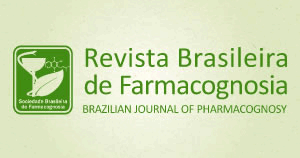The present study sought to identify the medicinal plants cultivated in a communal medicinal plant garden in Casimiro de Abreu, Rio de Janeiro State, Brazil, and to access its utilization and importance to the local population based on interviews with the garden's administrator and forty rural users. The Relative Importance Index (RI) was calculated for 96 medicinal species. Twenty-seven species had a RI>1.00, with Aloe vera (L.) Burm. f. and Leonurus sibiricus L. (erva-macaé), having the largest value (2.00). Interviews revealed that the majority of the rural users live in the municipality where the garden is located, visit it on a weekly basis, trust the recommendations of the administrator, and know how to prepare the remedies used. Plants that treat illnesses related to the respiratory system are most sought after. The free use of the garden by the local community, associated with the small initial investment, demonstrates the viability of this public initiative and the value of traditional knowledge, but also calls the authorities attention for their safe human use.
Medicinal plant garden; medicinal plants; local knowledge; rural communities; ethnobotany

